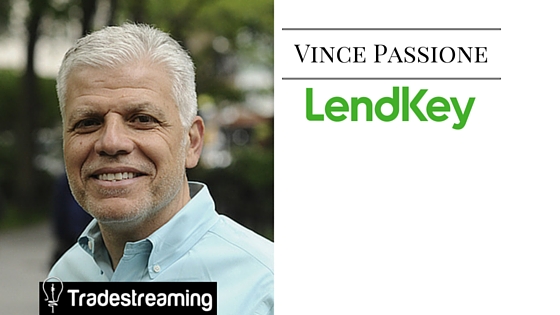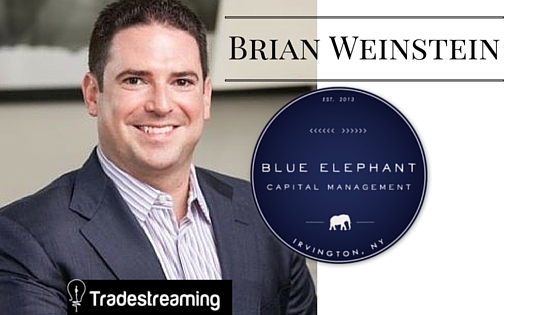9 alarming facts about online lending
5 trends we’re watching this week
[alert type=yellow ]Every week at Tradestreaming, we’re tracking and analyzing the top trends impacting the finance industry. The following is a list of important things going on we think are worth paying attention to. For more in depth trendfollowing, subscribe to Tradestreaming’s newsletters .[/alert]
- How Payoff is shifting the conversation about consumer debt to financial wellness (Tradestreaming): Payoff seems to be genuinely interested in helping its clients find their way out of debt and start saving. Pretty weird for a company that extends credit.
- Banks should take fintech seriously, not panic, but make a gameplan (McKinsey): A new McKinsey report hit the wires this week – it’s a sanguine analysis meant for finance professionals. “Specifically, this means that banks should be less preoccupied with individual fintech attackers and more focused on what these attackers represent—and build or buy the capabilities that matter for a digital future.” Worth a read.
- J.P. Morgan acquires nearly $1 billion worth of LendingClub loans — Sources (Nasdaq): J.P. Morgan has agreed to acquire nearly $1 billion worth of personal loans arranged by LendingClub, according to people familiar.
- Why one of the best fintech investors, Foundation Capital’s Charles Moldow, invests only in B2C (Tradestreaming): Foundation has one of the strongest fintech portfolios and General Partner, Charles Moldow (LendingClub, OnDeck Capital, Envestnet, Motif Investing) explains why he sees so much more room to run in disrupting finance.
- Quicken Loans getting into personal loans (Detroit Free Press): Quicken this week launched RocketLoans, an online service offering cash loans of $2,000 to $35,000 to prospective borrowers with good credit scores and financial histories. The loans have fixed terms of three to five years and carry interest rates ranging from just over 5% to the low or mid-teens.
[podcast] Why Foundation Capital’s Charles Moldow invests in B2C fintech companies

Last week, we had Caribou Honig of QED Investors on the podcast and I said that his portfolio is one of the strongest in fintech. If I had to name the top investors in the next generation of finance companies, Charles Moldow of Foundation Capital would definitely be near the top of the list, as well. Charles joins us this week on the Tradestreaming Podcast to talk about his thesis behind why he likes to invest in a trillion dollar industry that, in his words, “doesn’t do a great job servicing its customer base”.
His white paper, A Trillion Dollar Market By the People, For the People is essential reading for anyone who wants to know about the marketplace lending space: its size, structure, and potential. We’ll include a link in the show notes to it. His current portfolio includes auxmoney, BTCJam, Finxera (formerly Bancbox), LendingClub [IPO 12/11/14], Lending Home, Motif Investing, and On Deck Capital [IPO 12/17/14].
I think you’ll find my conversation with Charles to be thought-provoking — pay attention to why he prefers to build standalone B2C finance companies as opposed to firms that partner and sell into incumbent financial institutions. Contrarian and a very interesting point.
Listen to the FULL episode
In this episode, Charles shares:
- his thesis on why he likes to invest in early stage fintech
- why fintech has been relatively off the radar screen for many venture capitalists
- his preference building B2C companies in the financial services space and why B2B firms have a hard go at it
- how his white paper changed how we view peer to peer lending by renaming it the marketplace lending industry
- why he turned down investing in Lending Club when he first met them in 2009 and why pulled the trigger in 2010 and invested
- the struggles of matching supply and demand for a consumer financial marketplace
- the challenges originally faced by OnDeck Capital and how the company solved them
- the opportunity to market to millennials and the challenge the generation (with rising debt and weak wages) poses for financial firms
- his view on the heating up of valuations in the fintech space
- his firm’s interest in insurance and why it could be an exciting, investable space
More Resources
- Foundation Capital (Charles’ firm)
EVEN MORE RESOURCES
[podcast] Where Blue Elephant’s Brian Weinstein is finding opportunity investing in marketplace lending

In Brian’s investment universe, the world is starved for yield and addicted to liquidity. When looking for his next investment, Brian and his firm pore through loan portfolios that are accompanied by lots of data to stress test performance assumptions. In his world, banks really ARE good at lending, so he’s looking at spaces where the banks aren’t participating as much in a pursuit for returns.
Brian joins me to discuss how peer to peer investors like him find opportunities by filling in some of the voids left behind by banks. We’ll hear what types of peer and direct lending he’s looking to invest in and what spaces he’s avoiding. We’ll also talk about boat finance. Yes, I said it, boat finance.
Listen to the FULL episode
What you’ll hear on this podcast:
- Brian’s story of how he got to Blue Elephant: Why Brian left his PM role at BlackRock, managing $100B, to pursue investing in the burgeoning field of marketplace and direct lending
- The type of research Brian and Blue Elephant conduct to determine the investability in loan portfolios coming out of marketplace and direct lenders
- What spaces in direct lending Blue Elephant is looking at and which investments it’s staying away from
- Why Blue Elephant likes the boat finance industry
- Brian’s view on what banks are really good at and where they aren’t (or don’t participate)
- Whether institutional investors should take equity positions in the marketplaces they participate in
THIS WEEK’S SPONSOR
This week’s episode of the Tradestreaming Podcast was sponsored by Collective2 — automated trading for humans.
Choose one of the thousands of automated trading strategies at Collective2, and trade it in your brokerage account.
To learn more, go to www.collective2.com/tradestreaming and as a Tradestreaming listener, you will get $55 off the first strategy you publish to Collective2.
MORE RESOURCES
- Blue Elephant Capital Management (website)
- Brian Weinstein discusses boat finance and the investment opportunity (Tradestreaming)
EVEN MORE RESOURCES
Photo credit: Beshef via Visual hunt / CC BY
[podcast] Funding Circle’s Sam Hodges on scaling growth by navigating globally
Online lending is enjoying its moment. New platforms are launching monthly and raising hundreds of millions of dollars in debt and equity in a race to redefine how we borrow and from whom. And it’s not just a US phenomenon — it’s happening globally.

Starting 5 years ago, Funding Circle was an early player in this marketplace lending space and has emerged as a leader servicing SMBs. The firm is originating $100 million in SMB loans every month and since inception has lent $1.7 billion to 12,000 businesses. The company was quick to expand internationally — with strong footholds in Western Europe and the US. The company is exclusively focused on providing finance to small business owners worldwide. Institutional lenders are looking to deploy capital across markets and Funding Circle is enjoying scale advantages from this exposure.
Sam Hodges, the co-founder of Funding Circle USA, joins us on the Tradestreaming Podcast to discuss the challenges he and his company successfully navigated in growing the business globally and how he’s planning to continue growing out into the next year.
Listen to the FULL episode
What you’ll hear on this podcast:
- How Funding Circle is leveraging its sole focus on lending to SMBs
- The challenges of taking a fintech company global early on and why, for Funding Circle, it makes all the difference
- How Sam and the rest of the Funding Circle team overcame these challenges
- How institutional lenders turn to firms like Funding Circle to help deploy capital across markets
- How Funding Circle prioritizes entering new markets and how the company sizes up these opportunities
THIS WEEK’S SPONSOR
This week’s episode of the Tradestreaming Podcast was sponsored by Collective2 — automated trading for humans.
Choose one of the thousands of automated trading strategies at Collective2, and trade it in your brokerage account.
To learn more, go to www.collective2.com/tradestreaming and as a Tradestreaming listener, you will get $55 off the first strategy you publish to Collective2.
MORE RESOURCES
- Funding Circle (website)
EVEN MORE RESOURCES
Photo credit: ShashiBellamkonda via Visualhunt / CC BY
[podcast] LendKey’s Vince Passione: There’s no Uber-ization of finance because the banks will adopt technology. Eventually.
As the interest in fintech and financial services in general continues to grow, there’s been chatter of an Uber-like disruption by the startups in the space.
Our next guest, Vince Passione would beg to differ. He’s the CEO of LendKey which provides the incumbent banking system the digital tools it needs to sufficiently compete in marketplace lending. The issue right now isn’t whether marketplace lending is going to grow, it’s more of who takes the lead in this space. It’s worth listening to Vince because he’s been a major part of the move to digitize financial services, leading Citi’s move online and Ameritrade’s Institutional Client group.
This move to online lending started with pure play disrupters like Lending Club and Prosper and is moving to a more collaborative environment with traditional institutions following quickly with their own offerings powered by companies like LendKey. The company has 320 clients and has helped originate over $1 billion in loans with its banking clients.
In Vince’s opinion, there will never be an Uberization of finance because banks and credit unions do eventually adopt technology. They survive. Same thing happened in Internet banking.
There is an entire system of trust and regulatory framework built around banks making them very hard to disintermediate. In this sense, LendKey is providing the shovels and pickaxes for the marketplace lending goldrush and it’s selling them to the big boys.
Listen to the FULL episode
In this podcast, you’ll hear about the following:
- How and why lending-as-a-service is being adopted by traditional lenders
- Why banks aren’t being Uber-ized
- How this whole land grab for online lending will play out
- New consumer demands for increased transparency, speed, and customization in payment terms
- How future clients desire to engage with digital lending brands
- How digital decision making is occurring at top performing banks
This week’s sponsor
This week’s episode of the Tradestreaming Podcast was sponsored by Collective2 — automated trading for humans.
Choose one of the thousands of automated trading strategies at Collective2, and trade it in your brokerage account.
To learn more, go to www.collective2.com/tradestreaming and as a Tradestreaming listener, you will get $55 off the first strategy you publish to Collective2.
MORE RESOURCES
- LendKey (website)
EVEN MORE RESOURCES
Blue Elephant Capital’s Brian Weinstein bullish on boat finance, platform lending
Brian Weinstein is Managing Partner at Blue Elephant Capital Management. Previously, Brian was a portfolio manager at BlackRock, overseeing $300 billion in assets across short duration, financial institutions and multi-sector fixed income portfolio.
Blue Elephant is at the forefront of the newly evolving structural opportunities made possible by the intersection of technology and finance. The asset manager is among the first to offer investors institutional quality access to the yields of the developing platform lending market. Brian joined Tradestreaming to talk about the firm’s investment strategy and where he’s looking to uncover reasonable yields on a risk-return basis.
What is Blue Elephant? Are you looking at a global investment universe?

Blue Elephant Capital was founded by 3 former Wall Street professionals – 2 from traditional banks and 1 from the asset management industry. Together, we watched the banks get heavily regulated at the same time that the Fed dropped interest rates to zero, inflating asset values globally. We left out respective jobs with the idea that there were going to be many opportunities that emerged in this type of environment.
The first place caught our attention was the “peer-to-peer” or “marketplace” lending industry, where the technology is changing the way borrowers and lenders interact. We’ve started a fund that invests directly in loans originated by these non-bank lenders. With our capital markets background, we are able to focus in on where the best risk adjusted returns will be based on our economic outlook.
Currently, we are investing in prime US secured and unsecured consumer debt, secured US small business debt, and New Zealand unsecured consumer debt. We continue to look at opportunities globally.
You have a traditional portfolio mgmt background. what propelled you to address such a young space in platform lending?
My traditional portfolio management background taught me some very important things which lead me toward this young industry. The most important is that a good investor needs a long-term thesis that serves as the basis for investing. In today’s world, that has become exceedingly difficult. Too many investors are focused on short term performance, despite the fact that yields are at all-time lows.
To me, marketplace lending represents an investment opportunity where I can put my long-term thesis to work, while getting compensated for the risks we are taking. Marketplace lending represents one of the many ways that capital markets are going to change as the large banks become less dominant – so being on the forefront of the change and using my skill set to capitalize on the changing environment makes a lot of sense.
What’s your interest in boat finance? What’s the investment case and what does the field look like?
 Boat finance was one of those opportunities that took a long time to come together. Our first investment was on the unsecured US consumer side. We think that investment makes sense given the large quantity of data that the underwriting is based on. From there, the industry has really started to evolve into much riskier markets: namely, subprime consumer and unsecured small business lending.
Boat finance was one of those opportunities that took a long time to come together. Our first investment was on the unsecured US consumer side. We think that investment makes sense given the large quantity of data that the underwriting is based on. From there, the industry has really started to evolve into much riskier markets: namely, subprime consumer and unsecured small business lending.
Quoted yields in these markets are higher than in the prime markets, but the underwriting is based on a small data set and we think it is a terrible time in the business cycle to go down in quality. More likely than not, these subprime markets will end up with lower returns than the prime markets after default.
This left us looking for a secured debt market. The only problem is that most of the good ones are well covered by traditional capital markets – mortgages, autos, and equipment lending are good examples. The used boat market ended up being a great opportunity for us because it is truly underserved by the broad markets. The collateral has a title, is insured, is already depreciated and can be repossessed, so it has real value to the loan holder. It is a nice complement to our unsecured portfolio.
What’s the most underhyped investment opportunity in online finance now? what’s overhyped?
There is so much hype surrounding the space that it is hard to find anything underhyped exactly. I think the prime unsecured paper that we like makes a lot of sense. It doesn’t look as “sexy” as some of the lower quality lending, but I think it is easier to understand the borrower and how they will behave.
The overhyped part at this stage is the lower-quality lender, whether that is subprime consumer or unsecured small business lending. The hype comes from the higher coupon that these lenders offer to investors. If you stop and loss-adjust the yields for what happens during a downturn, you’ll quickly realize why banks have not traditionally made these loans.
What can go wrong with these types of investments? What can go right?
Lending is not a risk free business. A turn in the business cycle will impact the sector negatively. As interest rates rise or the credit markets weaken, there will be other asset classes competing for the same capital which will slow down the growth in the industry. Regulation is coming as are legal challenges to the structure of some of these lenders. These risks are part of the reason why returns are higher in this space than many others, so at least investors are being compensated for taking those risks.
What can go right is that the industry matures, adopts best practices and demonstrates that the models can survive the inevitable bumps in the road that are coming. Blue Elephant’s team brings decades of institutional experience to the space – we are qualified to serve as guides, making sure investors stay on the correct path.
What’s next for you and Blue Elephant?
We will continue to look for opportunities in the global marketplace lending space as well as other areas where banks are pulling back. Remember, bank disintermediation is the real theme here, not purely fintech – there will be plenty of opportunities in direct lending space. We are ready to expand our purview when it makes sense.
In December, we will launch our second fund, which is a unlevered version of our current offering, targeted towards 401k/IRA and offshore investors.
What’s Goldman Sachs doing in online consumer lending?
Goldman has ambitious plans to offer loans of a few thousand dollars to ordinary Americans and compete with Main Street banks and other lenders. Goldman Sachs has built its brand on handling the portfolios of the rich and powerful. For 146 years, the venerable bank has provided all kinds of financial services, including banking and investment management to thousands of clients– individuals and businesses — globally.
In June, Goldman Sachs communicated that it was further investing in its consumer lending business. Lending a few thousands dollars to a family to remodel a kitchen is a far way from underwriting top tech IPOs, but GS looks serious about investing in its consumer lending offering. Goldman can do this given the fact that it converted to being a consumer bank from an investment bank during the financial crisis — enabling it to take on deposits.
While its activities seem to be in the early planning stage, Goldman’s interest appears to center around providing small loans of a few thousand dollars to Main Street, pitting it competitively alongside consumer banks and marketplace lenders like Lending Club and Prosper. It doesn’t appear that the company intends to establish a marketplace around its lending product (like Lending Club), opting instead to lend off its own balance sheet. Further signaling its intentions to the market, GS hired Harit Talwar, Discover Financial’s former CMO, to head its consumer unit.
Then, in August, Goldman Sachs acquired GE Capital Bank’s online deposit platform. As part of the purchase, GS will take on $16 billion in deposits, made up of $8 billion in online-deposit accounts and $8 billion in brokered CDs. Dozens of employees were targeted with expertise in areas including marketing, credit and engineering, according to one of the people. Without the onus of maintaining local branches, the global bank is quickly putting the pieces together to be a serious competitor in online consumer banking.
Now, Goldman Sachs is trying to poach top management from its newly-found competitors in a market that’s quite competitive for talent. Lending Club’s recent IPO may still have senior leaders there locked up on selling shares and the recent performance of top firms like Prosper make for a competitive recruiting environment. “We have recruited talent from a wide array of industries to build a team with diverse experiences,”Andrew Williams, spokesman for Goldman Sachs said in a statement. According to Bloomberg Businessweek, GS is contacting senior level players at firms in New York and San Francisco and it appears to be having some success: according to employees’ LinkedIn profiles,individuals have joined Goldman Sach’s online lending group from Citigroup Inc., Barclays Plc, American Express Co. and Discover Financial Services.
Goldman Sachs is a technology firm
For years, GS has been trying to convince the public that at its heart, it’s a technology company. Numerous managers have emphasized that Goldman Sachs has more engineers than Facebook — from CEO, Lloyd Blankfein all the way down the ranks. From internally developed products and services to investing in rising fintech stars, GS is active. It’s one of the banking firms behind Symphony, a communications app that just raised $100M and is taking on secure messaging in financial markets and beyond — taking aim at Bloomberg’s sweet spot.
Build, Buy, Partner, or Ignore: Banking’s response to online lending
Much attention is given to the startups in the online lending space. Companies like Propser are raising huge rounds. Acquisitions in the online lending space are beginning to become more frequent. With new investments and new companies being formed weekly, we almost never read about how banks are responding to some of the competitive pressures fintech startups are bringing to bear.
There are basically 4 ways banks are addressing fintech competition in online lending:
- Build their own offerings:[x_pullquote type=”right”]Lending.com is the latest entrant into an online consumer and small-business loan market that Morgan Stanley MS -0.22% analysts estimate could grow to $122 billion in 2020 from $12 billion in 2014.[/x_pullquote]The Blackstone Group recently announced it would be setting up its own competitive offering to provide loans for consumer purchases of big-ticket items as well as small-businesses loans. Blackstone’s new platform, which will launch as Lending.com, comes shortly after news that Goldman Sachs would be doing something very similar. As lead underwriter for LendingClub’s IPO, the growth potential of online lending wasn’t lost on Goldman. When LendingClub’s founder and CEO appeared on the Tradestreaming podcast, it was clear that LC had its sights on disrupting the credit card business — it may be that online lending its an expansive move for banks and financial services firms like Goldman and Blackstone.
- Buy startups in the space: While we’re starting to see some of the startups consolidate and purchase other online lenders to capture market share, there haven’t been a whole lot of examples of incumbents acquiring upstart marketplace lenders. BFS Capital, a firm that’s been in business since 2002 and has leant out over $1 billion to small businesses, did make a recent acquisition as it welcomed Entrust Merchant Solutions to its growing family. As the parent company to the UK’s Boost Capital, BFS doesn’t appear to have a lot peers acquiring growth. Regulation may play a key structural role, preventing traditional banks from getting into the online lending business.[x_pullquote type=”right”]“We do practically no auto loans, no student loans, no unsecured personal loans. So as long as I have my name on those Lending Club mailers, the materials and the loans, that’s key to me.”[/x_pullquote]. Regions Bank recently disclosed a relationship with Fundation Capital
- Partner with the online lending startups: LendingClub has found some success in partnering with small, regional banks, with more than 200 of these players on the LendingClub platform. Small banks have, by and large, strayed away from unsecured lending, favoring mortgages instead. Partnering with online lenders enables the banks to quickly relaunch their offerings and provides the online marketplaces with partners that have deep, local roots and great direct mail lists.
- Ignore the future: It’s not easy to be a bank today. Regulation limits their decision sets. Competition from the bottom up is happening in fintech, where everyday, new, freshly-minted startups with sometimes hundreds of millions of dollars in backing are taking aim at the banks. Competition is happening laterally, as well as speciality financial service providers are expanding into core banking offerings. For the most part, banks struggle to keep up with the technological requirements today’s digital generation demands. While some banks may decide to “partner with the enemy”, many lack the wherewithal to rebuild their businesses within their regulatory parameters to compete against largely-unregulated competition.
While the future of banking is uncertain, one thing actually is: tomorrow’s banks won’t resemble today’s banks. Regulation will play a key role in determining in which ponds tomorrow’s banks actually fish. Meanwhile, fintech is enjoying a cold glass of white while chowing down at the fish fry.
[x_share title=”Share this Post” facebook=”true” twitter=”true” linkedin=”true” email=”true”]
[x_author title=”About the Author”]













